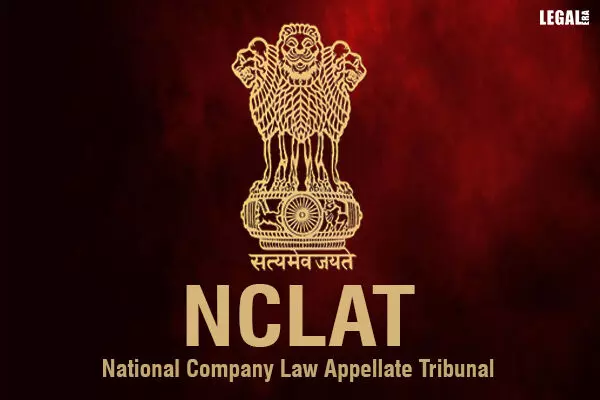- Home
- News
- Articles+
- Aerospace
- AI
- Agriculture
- Alternate Dispute Resolution
- Arbitration & Mediation
- Banking and Finance
- Bankruptcy
- Book Review
- Bribery & Corruption
- Commercial Litigation
- Competition Law
- Conference Reports
- Consumer Products
- Contract
- Corporate Governance
- Corporate Law
- Covid-19
- Cryptocurrency
- Cybersecurity
- Data Protection
- Defence
- Digital Economy
- E-commerce
- Employment Law
- Energy and Natural Resources
- Entertainment and Sports Law
- Environmental Law
- ESG
- FDI
- Food and Beverage
- Gaming
- Health Care
- IBC Diaries
- In Focus
- Inclusion & Diversity
- Insurance Law
- Intellectual Property
- International Law
- IP & Tech Era
- Know the Law
- Labour Laws
- Law & Policy and Regulation
- Litigation
- Litigation Funding
- Manufacturing
- Mergers & Acquisitions
- NFTs
- Privacy
- Private Equity
- Project Finance
- Real Estate
- Risk and Compliance
- Student Corner
- Take On Board
- Tax
- Technology Media and Telecom
- Tributes
- Viewpoint
- Zoom In
- Law Firms
- In-House
- Rankings
- E-Magazine
- Legal Era TV
- Events
- News
- Articles
- Aerospace
- AI
- Agriculture
- Alternate Dispute Resolution
- Arbitration & Mediation
- Banking and Finance
- Bankruptcy
- Book Review
- Bribery & Corruption
- Commercial Litigation
- Competition Law
- Conference Reports
- Consumer Products
- Contract
- Corporate Governance
- Corporate Law
- Covid-19
- Cryptocurrency
- Cybersecurity
- Data Protection
- Defence
- Digital Economy
- E-commerce
- Employment Law
- Energy and Natural Resources
- Entertainment and Sports Law
- Environmental Law
- ESG
- FDI
- Food and Beverage
- Gaming
- Health Care
- IBC Diaries
- In Focus
- Inclusion & Diversity
- Insurance Law
- Intellectual Property
- International Law
- IP & Tech Era
- Know the Law
- Labour Laws
- Law & Policy and Regulation
- Litigation
- Litigation Funding
- Manufacturing
- Mergers & Acquisitions
- NFTs
- Privacy
- Private Equity
- Project Finance
- Real Estate
- Risk and Compliance
- Student Corner
- Take On Board
- Tax
- Technology Media and Telecom
- Tributes
- Viewpoint
- Zoom In
- Law Firms
- In-House
- Rankings
- E-Magazine
- Legal Era TV
- Events
Supreme Court: NCLAT can recall its Judgments

Supreme Court: NCLAT can recall its Judgments
The verdict came after a request was filed in the Corporate Insolvency Resolution Process by Union Bank of India against Amtek
The Supreme Court has refused to interfere with a National Company Law Appellate Tribunal (NCLAT) order holding that recalling applications filed before it was maintainable.
In the Union Bank of India vs Financial Creditors of Amtek and Ors case, a bench of Justice Sanjay Kishan Kaul and Justice Sudhanshu Dhulia declined to decide based on the merits and facts of the case.
The Court stated, "We are in agreement with the view taken by the five-judge bench of the NCLAT, Delhi, and thus find no reason to interfere with the impugned judgment. Therefore, the civil appeal is dismissed."
The Judges upheld the ruling of the appellate tribunal passed in January 2022. The verdict was authored by NCLAT Justice Ashok Bhushan (Chairperson), Justice Rakesh Kumar Jain and Rakesh Kumar (Judicial Members), Alok Srivastava, and Barun Mitra (Technical Members).
The Tribunal held that in the exercise of its inherent jurisdiction, based on sufficient grounds, it could entertain and allow applications for recall of its judgments.
NCLAT had explained, “The power to recall a judgment can be exercised by this tribunal when any procedural error is committed in delivering the earlier judgment. For example: If the necessary party has not been served or was not present before the tribunal when the judgment was delivered adverse to a party. There may also be other grounds for recall of a judgment. The well-known ground on which a judgment can always be recalled by a court is the ground of fraud played on the court in obtaining the judgment.”
Thereafter, the tribunal had set aside two of its earlier contrary rulings. The verdict came in an interlocutory application filed in the Corporate Insolvency Resolution Process (CIRP) initiated by the Union Bank against Amtek Auto (corporate debtor).
The reference to a five-member coram arose after Amtek’s financial creditors filed a petition seeking recall of the NCLAT order, which partly allowed the bank's appeal against a proposed resolution plan.
After the appellate tribunal held that recalling the application was maintainable, the bank approached the apex court.
Senior Advocate Gopal Jain with Advocates Alok Kumar, Deepti Bhardwaj, Kunal Arora, Raghwi Rawat, and Ayush Singhal, briefed by Shree Chakra Chambers, represented the Union Bank of India.
Additional Solicitor General N Venkataraman with Advocates Sanjay Kapur, Surya Prakash, Arjun Bhatia, Rabin Majumder, Sumant Batra, Sanjay Bhatt, and Ruchi Goyal appeared for Amtek Auto and its secured financial creditors.


